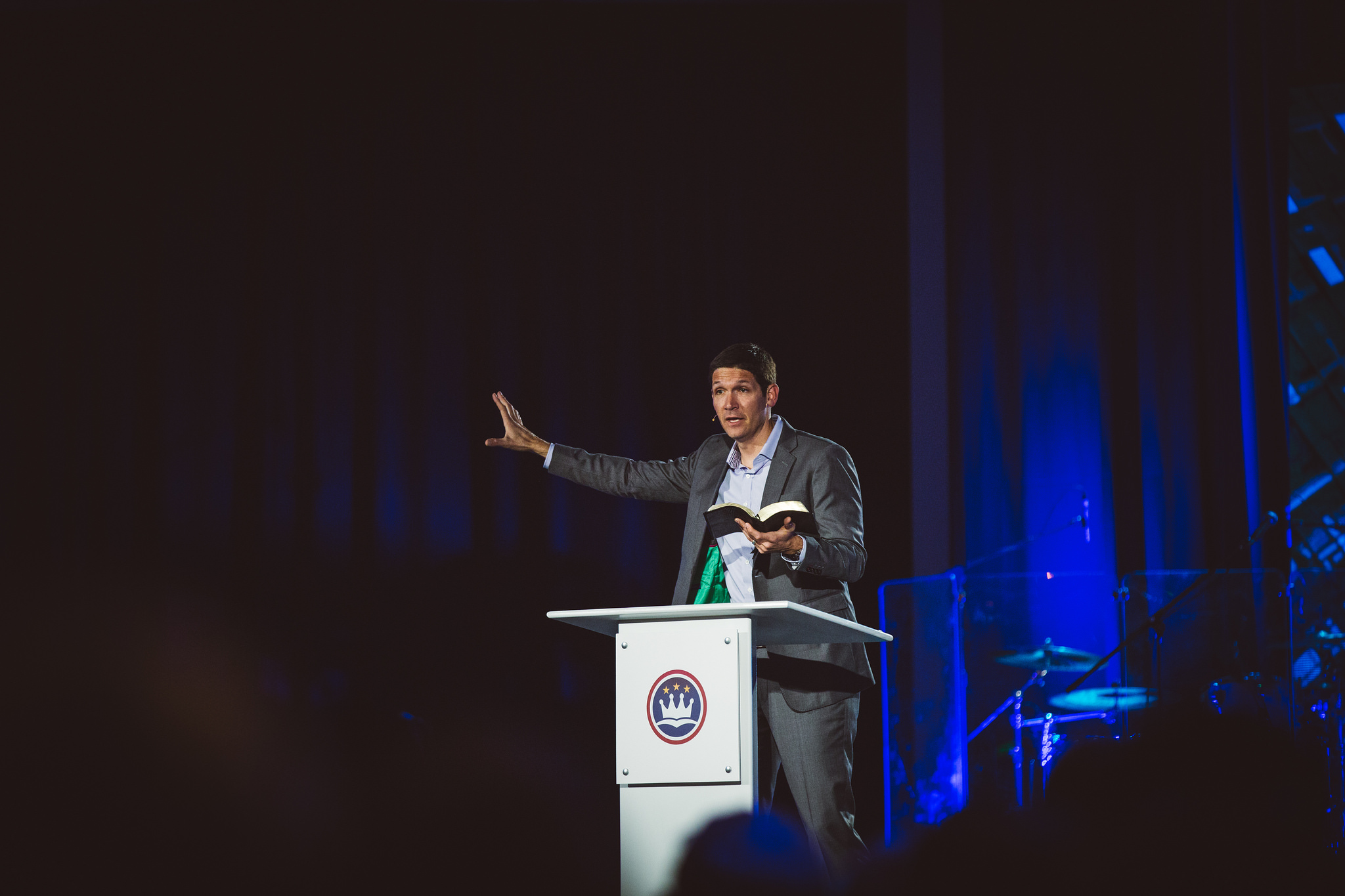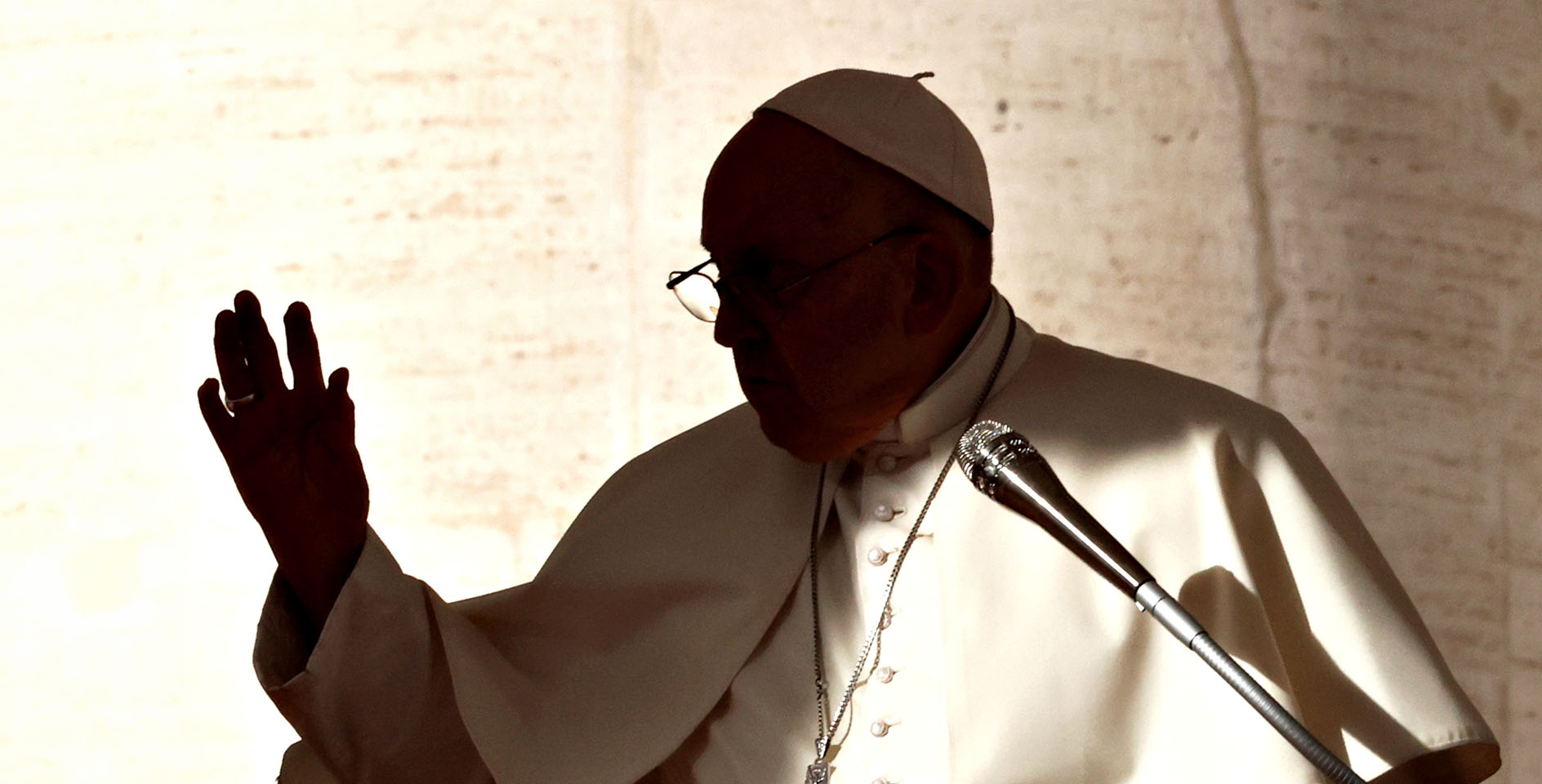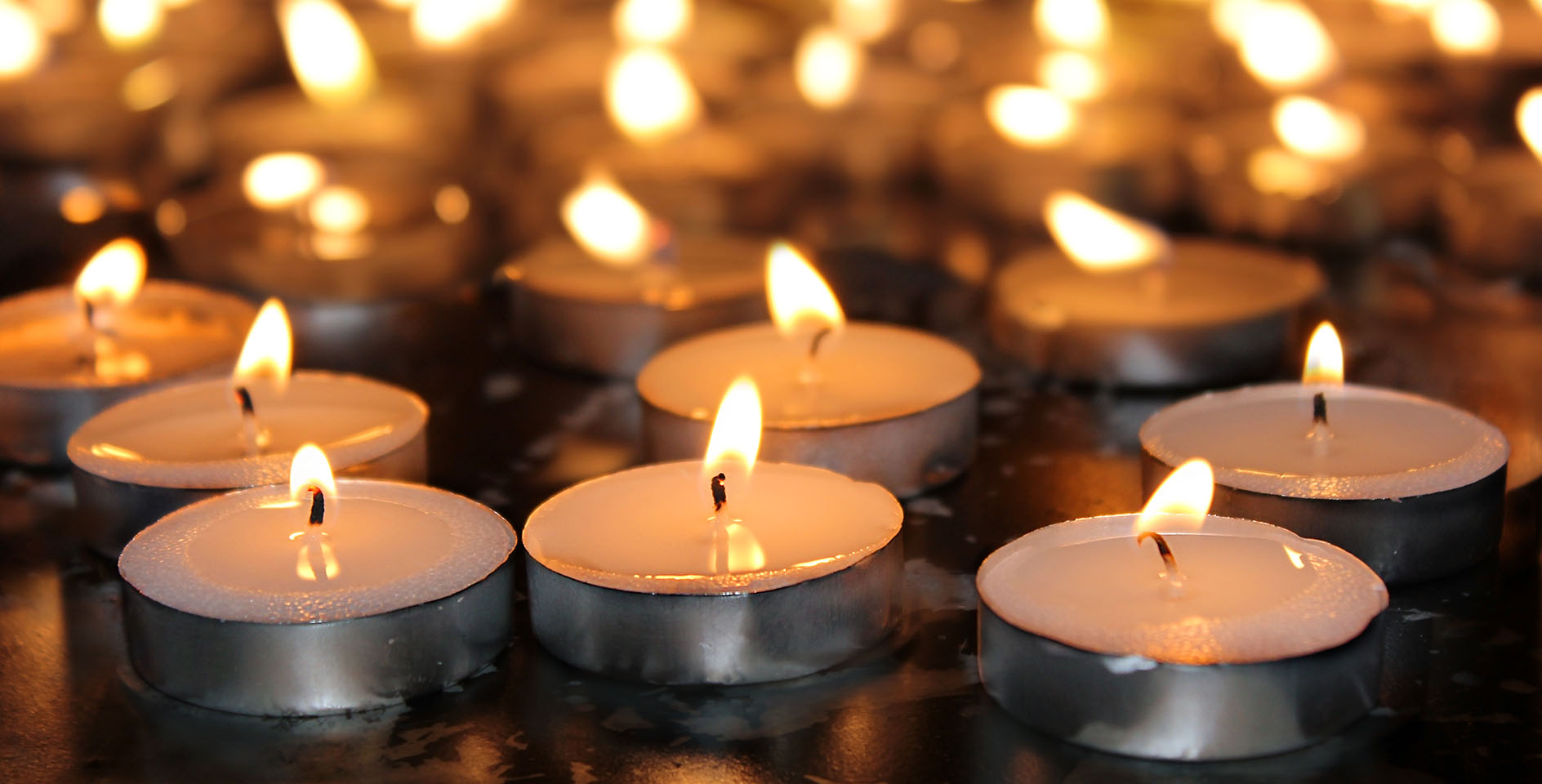Russell Moore’s words that concluded the second day at the third annual ERLC National Conference were heavy, but also hopeful, a theme consistent across all speakers that day.
“The shaking of American culture is no sign that God has given up on his church,” he said. “The shaking of American culture could very well be a sign that God is rescuing his church from a captivity that we didn’t even know we were in.”
Control and Christian culture
During his keynote session, Christianity Today executive editor Andy Crouch challenged attendees to ask whether they – and the American church as a whole – are “on a quest for control,” specifically of culture.
According to Crouch, a perfect balance of order and abundance are the key ingredients that lead to human flourishing. “The work of culture is to add new dimensions of order that uncover new possibilities of abundance,” he said.
“You are a leader when you become more committed to other people’s flourishing than your own.”- @ahc #ERLC2016
— Trevor Atwood (@TMatwood) August 26, 2016
As humans, Crouch added, we are uniquely given authority – the capacity for meaningful action – and vulnerability – exposure to meaningful risk. But control itself is a testament to true motivations.
“You know someone is addicted to control when their control begins to slip they become violent,” Crouch said. “What our culture has perceived of us Christians, is they see us losing control of culture and they see the rage with which we react to that loss of control.”
Dialogue: a way forward
Crouch offered another way forward: true leadership and leaders who “just show up and are honest about their limits, honest about our limits and call us to live a life of risk.”
He added that “true leadership is the stewardship of vulnerability.”
An afternoon breakout session panel between five women also offered practical ways to engage with people who think differently than us.
While author Trillia Newbell suggested that women can be faithful in building them relationships around them and engaging the culture thoughtfully, writer and hip hop artist Jackie Hill Perry shared her story of working with inner city youth and the often affluent, Caucasian women who mentored them.
“A lot of times the mentors had this ‘savior mentality’ that I had to kill,” she said. For the mentoring women, “saving these kids was a means of assimilating them to their culture. When what needed to happen was, no, we want to assimilate them to Christ.”
Millennials and the church
Dialoguing between millennials, that generation born between 1980 and 2000, is also important for the church, as they offer the church their own unique benefits and challenges. How can pastors engage with the next generation to cultivate culture?
Village Church pastor Matt Chandler said that he fears that some churches in the Bible belt are “filled with ungenerate Christians” – individuals raised in the church and immersed in Christian culture. They know to live a good life, but actually may never have heard the Gospel preached.
Reading from Luke 15 and the parable of the prodigal son, Chandler shared his own former frustration with nominal Christians, and his following conviction from being challenged by the father’s acceptance of not only the younger son, but the older son.
“The mission of God is to seek and save the lost, not moral betterment,” Chandler preached. “The basic Gospel message of why Christ has come has been completely lost on an entire generation.”
"Deconstruct idea that Jesus is about good people. He makes us good but doesn't require we're good before we come" @MattChandler74 #ERLC2016
— Ruth Malhotra (@RuthMalhotra) August 26, 2016
And some, unable to live up to what they have been taught is “the good life,” have trouble sharing their failings.
“We will often have to help, here in the Bible Belt, really moral church folk understand that they are not Christians. There are few things more offensive to people who grew up in church and have no relationship with Jesus Christ have no interest in following him. … You’re going to have to give the older brother an opportunity to repent.”
During a breakout session, a panel of pastors talked about other challenges presented by and to the younger generation. The pastors were encouraged, they said, about the determination and strength of millennials who choose to walk in the Christian faith in an increasingly antagonistic culture.
Jackie Hill Perry, the millennial represented on the panel, said that while millennials will find Scriptural truth on social issues offensive, “the gospel is offensive.”
“Millennials need to learn the authority of Scripture,” she added. Part of being a Christian, is being an exile.
Ben Stuart added that he reframes church to his younger attendees as a place of inter-age and inter-socio-economic interaction, and not as, “what can this church do for me.”
Man, is this an amazing message on Luke 15 by @MattChandler74 here at #ERLC2016. I'm wiping away tears and saying "Amen, Amen, Amen."
— Russell Moore (@drmoore) August 26, 2016
Conserving a “gospel authority”
Toward the end of the conference, Russell Moore’s keynote charged listeners to conserve truth with discernment. He shared his story of being a teenager attempting to decipher Christ from the cultural Christianity that surrounded him.
“Darkness is terrible. But darkness is even more terrible still when one is told that it is Jesus,” he said.
.@drmoore channeling CS Lewis: Gospel conservatives may be called closet liberals but we are actually wardrobe conservatives. #ERLC2016
— Phillip Bethancourt (@pbethancourt) August 27, 2016
What, though, is worth conserving? According to Moore, it is a gospel authority.
“If what we are conserving is not defined by the gospel, defined by a righteousness found in the lived life and the shed blood of the resurrected Jesus Christ … than we have nothing worth conserving at all,” he said.










